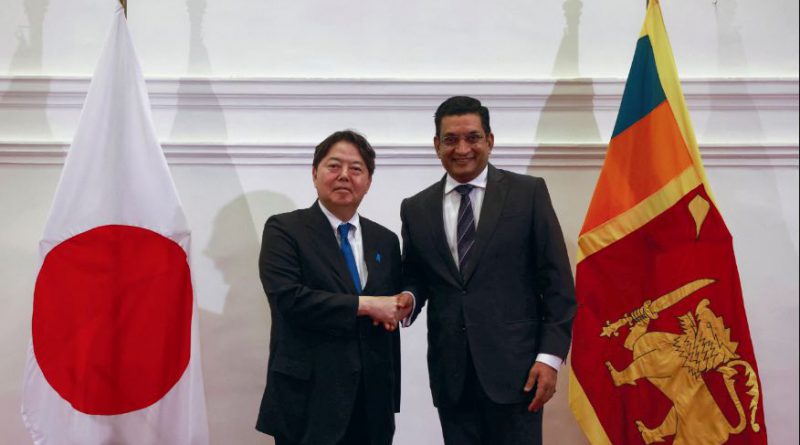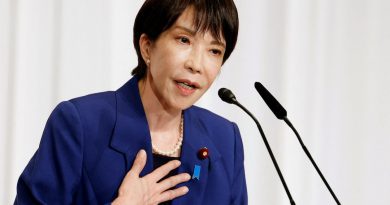Crisis-hit Sri Lanka invites Japan to resume investment
Colombo (Reuters) – Sri Lanka on Saturday invited Japan to resume investment in projects including power, roads and ports as the Japanese foreign minister wrapped up the first high-level visit to the crisis-hit country in nearly four years.
Sri Lanka Foreign Minister Ali Sabry said his country was seeking Japanese investment in sectors such as power, infrastructure and dedicated investment zones, as well as in the green and digital economies.
The South Asian island nation is working to restructure its massive debt to continue a $2.9 billion bailout from the International Monetary Fund, after its worst financial crisis in more than seven decades last year triggered default and the resignation of its president.
“We are confident that Sri Lanka’s economic recovery, which has made a promising start, and future growth prospects will provide us with greater opportunities to enhance the Japan-Sri Lanka relationship,” Sabry told a news conference.
He was joined by Japanese Foreign Minister Yoshimasa Hayashi, who is in Colombo as part of a multi-country diplomatic tour including India, South Africa, Uganda, Ethiopia and the Maldives.
“I conveyed my expectations for further progress in the debt restructuring process and stressed the importance of a transparent and comparable debt restructuring that involves all creditor countries,” Hayashi said.
He did not respond publicly to Sabry’s investment invitation.
Japan’s historically vibrant relations with Sri Lanka cooled after the island unilaterally suspended a $2 billion light railway project in 2020.
Ties improved in recent months after President Ranil Wickremesinghe appealed to Japan to help Sri Lanka weather the crisis, caused by economic mismanagement by successive governments, deep tax cuts and then the COVID-19 pandemic.
Wickremesinghe received Cabinet approval this month to reactivate the light rail project.
Lying along key shipping routes in the Indian Ocean, Sri Lanka has become a hot spot for influence between India and Japan on the one side and China on the other.
Japan is Sri Lanka’s biggest bilateral lender after China, with about $2.7 billion in outstanding loans, according to finance ministry data. India is the third key creditor.



